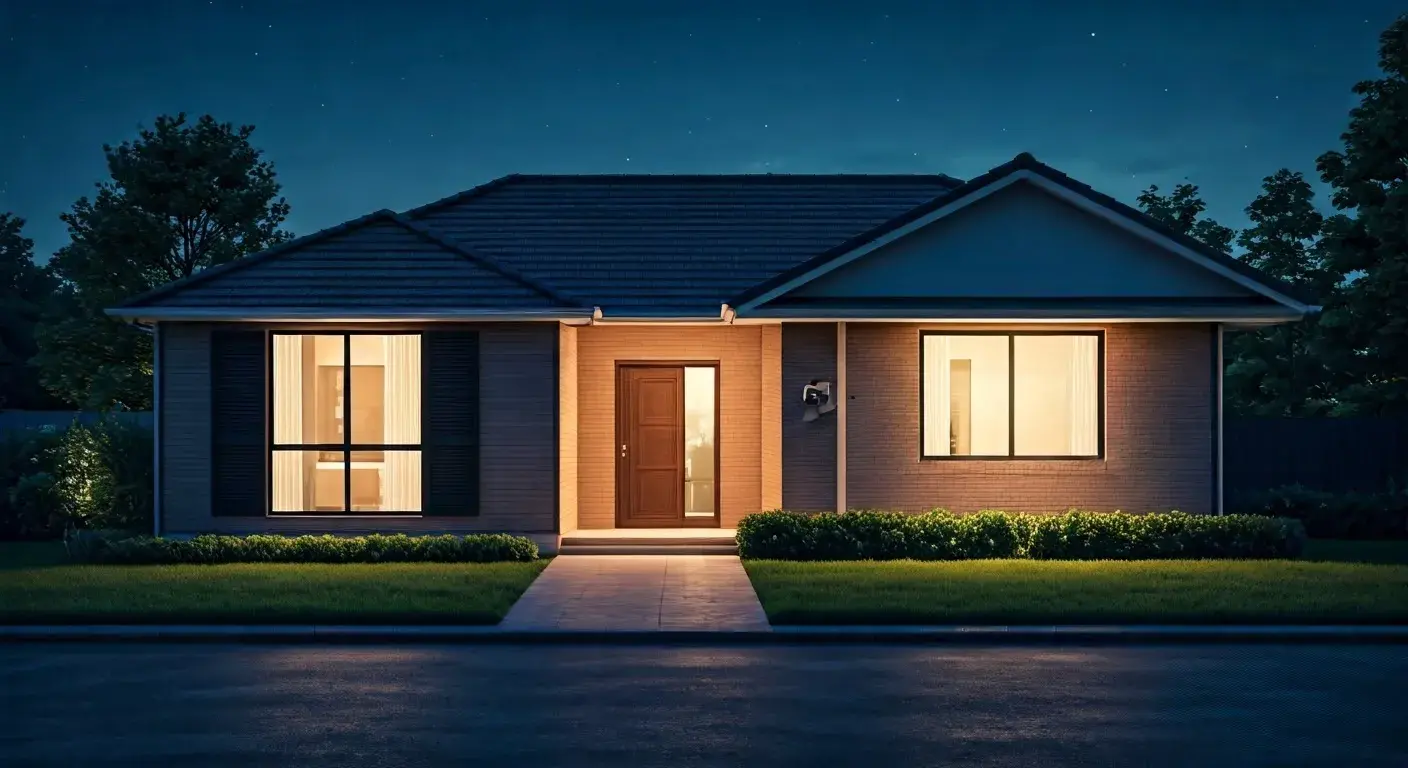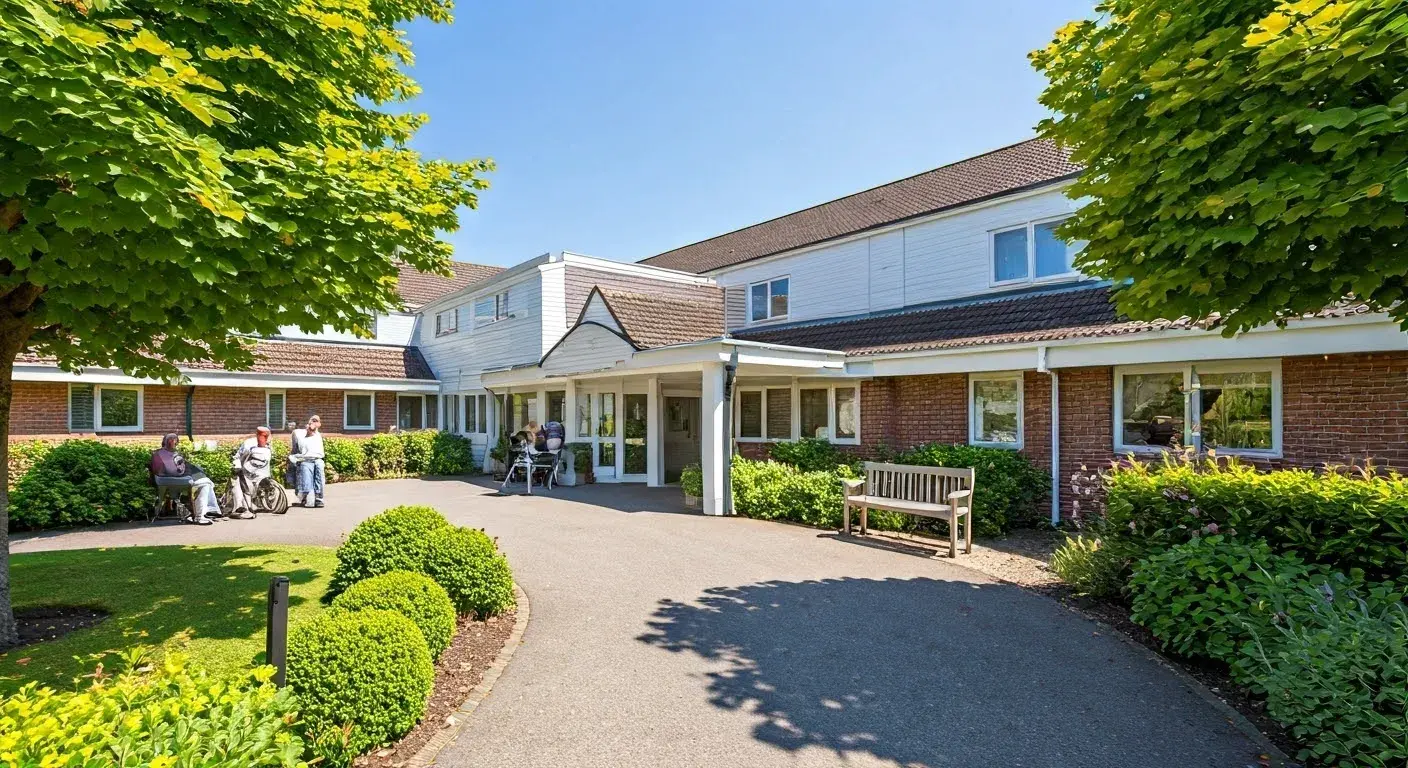Investing in a home security system can give you peace of mind. It helps protect your family and your belongings. Before you start looking for a home security system, it’s important to know about the costs. This guide will cover what affects security system costs, the types of systems you can choose from, and tips for making smart choices that fit your budget and needs.
Evaluating the True Cost of Home Security
When planning your budget for a home security system, it's easy to just look at the upfront cost. But you reed to think about the total cost, which includes both the starting price and the long-term benefits the system brings. By looking at these factors, homeowners can make smart choices that ensure safe living and peace of mind.
Though the first cost can change, it's smart to pick a system that provides long-lasting value through features, trustworthiness, and possible insurance discounts. This complete view helps make sure that your home security system fits your budget and gives full protection for many years.
Initial Investment vs. Long-Term Value
The first money you spend on a home security system includes the cost of equipment, fees for professional monitoring (if you choose this), and installation costs. Equipment costs cover things like control panels, sensors, cameras, and other accessories. Professional monitoring usually means you pay a monthly fee for alarm response and tech support around the clock. Installation costs can change based on how complex the system is and if you go with DIY or hire a professional for installation.
It's important to think about the long-term value of your investment. A strong home security system can stop burglaries, protect against fire and carbon monoxide, and might lower your insurance costs. Adding smart home features can also provide convenience and save energy over time.
Price Range of Home Security Systems in the U.S.
The cost of home security systems in the U.S. varies widely based on factors like equipment, installation, monitoring, and features. Here's a general price range:
Types of Home Security Systems and Their Costs
Understanding the different types of home security systems and their costs is important for making smart choices. You can choose between DIY installation and professional installation. You can also pick wired or wireless systems. Each choice affects the total cost and how well your security works. Take your time to look at the benefits and drawbacks of each system. Do this to find the one that fits your needs and your budget.
DIY vs. Professional Installation Systems
DIY home security systems, like those from SimpliSafe and Ring, are getting more popular. These systems usually need you to buy the equipment and set it up yourself. You can follow easy instructions to do this. While DIY systems save you money on hiring a professional, you should have some technical skills and time to spare.
On the other hand, professional installation is liked for its expertise and full support. Technicians handle the whole setup for you. They make sure the equipment is placed and configured the right way. With professional installation, you will feel at ease knowing the system is set up correctly.
Wired vs. Wireless Systems
Wired systems use the electrical wiring already in a building to link sensors and detectors to the control panel. This offers a steady connection. However, putting them in can cause some disruption, particularly in older homes, and they might not work well for renters.
On the other hand, wireless systems send signals without wires. They often use Wi-Fi or cell networks. This makes the installation process easier and allows you to place sensors wherever you want. Wireless systems are perfect for renters or for people who want an easier setup. They give a handy and flexible security solution.
Monitoring Options: Self vs. Professional
Self-monitoring helps homeowners get alerts and check their systems using smartphone apps. This way, they don’t have to pay monthly fees, but they need them to stay alert and take quick action when emergencies happen.
Professional monitoring offers round-the-clock tracking from a monitoring center. They send help when alarms go off. Trained experts manage emergencies, giving better security and faster responses when it’s really important.
Key Components of a Home Security System
A typical home security system has different parts that work together to keep you safe. It is important to know what each part does so you can create a system that fits your security needs. From control panels and sensors to cameras and alarms, every part helps strengthen your home security.
Control Panels and Keypads
Control panels are like the brain of a security system. They connect all the parts. Modern control panels usually have easy-to-use touchscreens. This makes it simple to manage the system, arm or disarm it, and customize automation settings.
A smart hub control panel works well with other smart home devices. This lets you control things like lights, thermostats, and door locks from one place. It improves security and helps save energy for better home management. Because they are easy to install and you can control the system with a mobile app, smart hubs are a popular choice for homeowners.
Sensors and Detectors
Sensors and detectors are very important for finding and warning you about possible dangers. Window sensors spot when someone tries to open a window without permission. Door sensors go off when doors are opened or left slightly open.
Carbon monoxide detectors can find this colorless and odorless gas. They alert you to serious dangers. Motion sensors notice movement within a certain area and can trigger alarms if someone tries to break in. When you place sensors and detectors in the right spots, they can help prevent burglaries and make your home safer. It is also key to place them wisely to reduce false alarms from pets or other things.
Cameras: Indoor, Outdoor, and Doorbell
Security cameras help you watch over your property from far away. Indoor cameras make home security better, while outdoor cameras keep intruders away and can help if something goes wrong.
The video footage from these cameras is important for investigations and can help find the people who did something wrong. An outdoor camera that can see at night makes sure you are always watching, even when it's dark. This adds more safety to your home security.
Additional Accessories: Alarms, Lights, and Smart Locks
Alarms make loud noises to scare away intruders and alert neighbors about dangers. Smart lights that connect to your security system can turn on by themselves when they notice movement. This helps to scare off potential burglars and improve home security.
Smart locks allow keyless entry and let you control access from far away. They boost security and make it easy for family and trusted friends to enter your home. By adding these tools, you can adjust your security system to meet your specific needs and improve your home's safety.
Cost Breakdown of Popular Home Security Brands
Looking into the costs of popular home security brands such as SimpliSafe, Vivint, and Ring can help you compare them better. Each brand has different prices, equipment options, and monitoring plans. This means there's something for everyone, no matter your budget or security needs.
SimpliSafe: A Budget-Friendly Choice
SimpliSafe offers affordable home security solutions that do not give up important features. Their equipment packages are priced competitively and include a variety of sensors, cameras, and alarms. SimpliSafe's monitoring plans are also easy on the wallet, which makes them a good choice for homeowners who want to save money.
Their clear pricing, along with a no-contract option, gives you flexibility and keeps costs low, making them popular among those who want reliable security without breaking the bank. You can pick from different monitoring plans, including self-monitoring, to find the level of protection that fits your needs.
Vivint: Premium Services at a Cost
Vivint stands out because of its high-quality home security services. They focus on smart home integration and advanced automation features. Their systems are installed by professionals and work well with different smart home technologies. Although Vivint provides top-notch equipment and features, such as smart home automation, their services are usually more expensive than some other choices.
Their complete security solutions are perfect for homeowners who want advanced features and smooth automation. This can make your life easier and more secure. Consider Vivint if you want a nice system with professional installation and smart home options, but remember that you might need to spend more money at the start.
Ring: Easy Integration with Smart Homes
Ring is famous for its popular video doorbells. Now, it offers full home security systems too. Ring Alarm systems are easy to install by yourself, and they work well with Amazon’s Alexa and other smart home products.
One of the best things about Ring is that it works with Google Assistant. This lets you use voice commands to control your security system. You can arm or disarm it and view live camera feeds easily. This easy approach to smart security has made Ring a top pick for homeowners who enjoy using technology to stay safe.
ADT: Trusted Security with Higher Pricing
ADT is one of the oldest names in home security. It is known for its good reputation and complete security solutions. With years of experience and coverage across the country, ADT is a safe choice for homeowners who want peace of mind. Their systems are backed by professional monitoring, providing a high level of protection. However, this often means higher monthly payments compared to newer companies.
Their long history in the industry shows they can be relied on for professional monitoring services. Still, their prices may be higher than some other choices, and they usually need long-term contracts. Think about your budget and the value of choosing a trusted brand when looking at ADT.
How to Choose the Right Home Security System
When you pick a home security system, you need to think about several things. First, look at your home's security needs. Next, consider your budget. Finally, think about the features you want. Doing this will help you make a smart choice about the right security system for you.
Assessing Your Home's Security Needs
Look at how your home is set up. Check the number of entry points you have and see if there are any specific security concerns. A one-story home with only a front door has different security needs compared to a multi-story home with several entry points.
Find vulnerable spots like windows, backyards, or standalone garages. This will help you make better decisions. If you live in an area that often faces package theft or severe weather, make sure your system can handle those risks. It’s also important to know how fast emergency services respond in your area. This can help you figure out how urgent your security system should be and if you need professional monitoring for your peace of mind.
Comparing In-Depth Costs Beyond the Tag Price
Gather quotes from different security companies to compare the value of their systems. Check contracts closely for any hidden costs. These can include activation fees, cancellation fees, or equipment leases.
Look at more than just the upfront equipment price. Consider installation fees, monthly monitoring costs, and the lengths of the contracts. Some security companies give discounts for bundling services. This can include home security with internet or home automation features. Exploring these options might help you save money.
Also, check the customer service reputation of each company. Look at their warranty offerings too. Paying for a system that values customer support and has a good history of solving problems can be very important.
Reading Customer Reviews and Experiences
Take some time to read online reviews and testimonials from customers who have used the security companies you are thinking about. Real-life experiences can give you helpful information about the reliability of their systems, the quality of their customer service, and how satisfied people are overall.
Customer feedback often shows both the strong points and weak points of different security companies. This can help you spot any concerns or areas where a company does well. Look for companies that have mostly positive reviews and a good history of handling customer issues.
Financial Planning for Home Security
Home security is an important investment, but it doesn’t have to be too expensive. With good financial planning, you can find a system that works well for your budget.
Budgeting for Installation and Monthly Fees
When you plan a budget for a home security system, include both the setup costs and regular monthly fees. Decide if you want to pay for the equipment upfront or if you would rather divide the cost into smaller monthly payments.
Think about the monthly charge for professional monitoring, if you need it, and make sure it fits within your monthly budget. Build a clear budget that shows your security expenses. This will help you avoid surprises and keep your payments manageable.
Understanding Contracts and Cancellation Fees
Make sure to read contracts closely to know the terms and conditions. Watch out for the length of the contracts, which can be from one to five years. There may also be cancellation fees if you want to change providers or move.
Get to know the details so you won’t face surprise charges. It is important to understand the financial commitments during the contract. Choosing companies with flexible contract options or clear cancellation policies can give you peace of mind.
Insurance Discounts for Enhanced Home Security
Many insurance companies give discounts on homeowners or renters insurance for homes that have security systems. These discounts can lower the overall cost of the security system as time goes on. You should reach out to your insurance provider to ask about discounts related to the specific features of your security system. This extra benefit can lead to big savings on your insurance costs over time.
Navigating Offers and Discounts
Security companies often have special offers and discounts. This is especially true during busy times or promotional events. Keep an eye out for seasonal deals that may give you cheaper equipment, free installation, or no activation fees.
Seasonal Promotions and Deals
You can take advantage of seasonal sales events such as Black Friday, Cyber Monday, or holiday promotions. These events can help you save a lot of money on security systems or individual pieces of equipment. Many companies provide special deals or bundle packages for a short time during these sales.
Bundling Services for Savings
Ask about combining your home security system with other services like internet, TV, or phone plans. Many companies give good discounts for bundling these services together. This can make your bills easier to manage and may help you save money.
Conclusion
As we finish looking at the costs of home security systems, it's clear that you need to think carefully about both the starting costs and the long-term benefits. By exploring the different types of systems, their parts, and monitoring options, you can create a security plan that meets your specific needs. Don't forget to consider maintenance costs, insurance discounts, and possible savings to improve your financial planning for better home protection. Checking out offers, promotions, and customer reviews can also help you pick the right system for your home security needs. Stay alert and stay safe.






